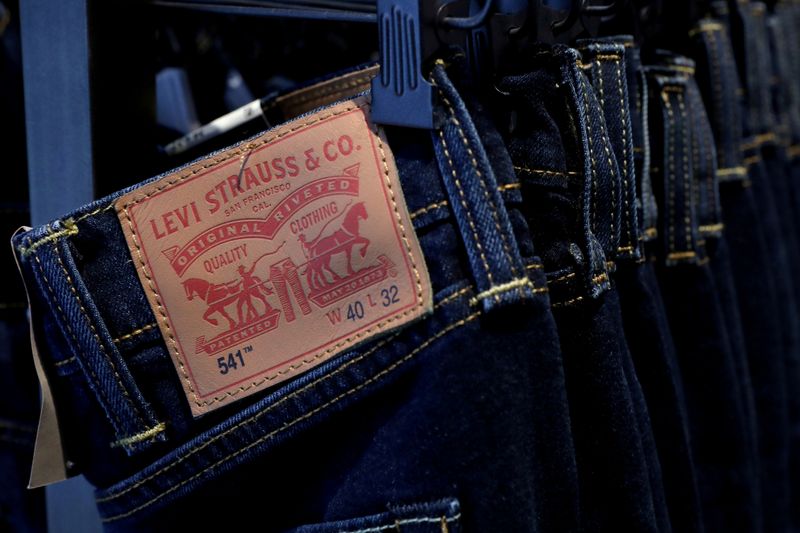S&P 500 cuts losses as Nvidia climbs ahead of results
Investing.com -- Levi Strauss (BIT:LEVI) (NYSE:LEVI) has said that reaching its $10 billion revenue goal will take longer than initially planned, as Western consumers grapple with rising living costs, the Financial Times reported on Tuesday.
Despite these challenges, the company remains committed to opening hundreds of new stores and expanding its appeal to women.
CEO Michelle Gass told the Financial Times that the timeline for achieving revenues of $9 billion to $10 billion, originally set for 2027, has been delayed due to industry disruptions.
Levi's reported annual revenues of $6.2 billion for the fiscal year ending November 2023, while net income dropped to $250 million from $569 million the previous year.
Gass, who officially took over as CEO in 2023, said the company would reassess its revenue targets before providing a more precise timeline. Harmit Singh, Levi’s finance and growth chief, indicated that the revised timing would be announced in about a year and delayed by a few years due to "consumer pressures" in Western markets, though he noted that wealthier U.S. consumers were in a better position.
While U.S. shoppers earning over $100,000 remain Levi's primary audience, more budget-conscious consumers are still feeling the strain, the report added.
Singh added that European consumers are even more cautious, despite inflation easing faster than in the U.S., while demand in Asia and Latin America remains stable.
Gass expressed confidence that Levi's will eventually reach its $10 billion target, citing growth opportunities across various segments. The company is advancing plans to expand its offerings, such as dresses and non-denim products, particularly to women, who currently account for only a third of its sales.
The CEO aims for gender parity in sales and a broader product range, including skirts and jumpsuits.
Levi’s, known for its iconic 501 jeans, plans to open 500-600 new stores globally over the next few years, in regions like Asia, Latin America, and Europe. Gass emphasized that wholesale partnerships remain crucial alongside the company’s direct-to-consumer strategy.
Levi’s, which went public in 2019 and has a market capitalization of around $8 billion, has faced challenges in recent years, including a plateau in revenues.
Under Gass’s leadership, Levi’s aims to modernize its business model, transitioning from a primarily wholesale operation to a more consumer-focused approach while also expanding its premium offerings, such as bespoke jeans sold in exclusive locations like its new "Haus of Strauss" in Paris, the report said.
